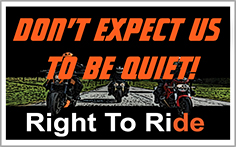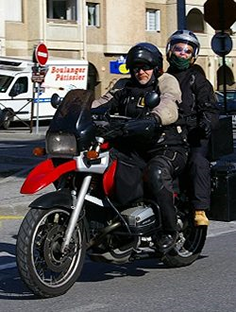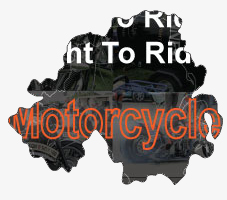 From here you can access the Featured Motorcycle Issues that we were involved in.
From here you can access the Featured Motorcycle Issues that we were involved in.
These involved the motorcycle itself and usually regarding technical matters from emissions to theft.
For European Issues – consultations – campaigns – Click Here
We also monitored motorcycle issues and were involved at Government Departmental level and lobbying in the background, setting the ground work, for the future.
 As we live in a province, that the UFU says that, agriculture is the biggest industry in rural areas, it is inevitable that farm operations, most of which are seasonal, will be more prevalent on rural roads at certain times of the year so perhaps there is a need to warn other road users on what to expect at certain times.
As we live in a province, that the UFU says that, agriculture is the biggest industry in rural areas, it is inevitable that farm operations, most of which are seasonal, will be more prevalent on rural roads at certain times of the year so perhaps there is a need to warn other road users on what to expect at certain times.In presenting the information from the UFU it is not our intention for this to be an excuse for farmers not to take responsibility, these are guidelines which are supported by rules and legislation.
As riders we should be aware of what rural roads hold.
![]()
 We have come across this on-line booklet from the PSNI – Collision Advice – A step by step guide for motorists involved in a collision on the road.
We have come across this on-line booklet from the PSNI – Collision Advice – A step by step guide for motorists involved in a collision on the road.
The advice offered in the booklet includes the primary role of the police in investigating road collisions and what type of road collisions they will or not attend or investigate.
For example the PSNI does not investigate road traffic collisions on behalf of insurance companies.
![]()
 MAG Ireland, the Irish Motorcyclists’ Action Group, has published a clarification on forecourt rules as regards riders being refused petrol, unless they dismounted from their bike.
MAG Ireland, the Irish Motorcyclists’ Action Group, has published a clarification on forecourt rules as regards riders being refused petrol, unless they dismounted from their bike.
It was last year that a number of riders had informed MAG Ireland, that they were refused petrol unless they dismounted their bike.
Filling a bike in this manner is usually carried out by riders whose bike only has a side stand fitted, so that with the rider sitting on the bike upright the bike is not leant over on the side stand, thus the petrol tank will take some more petrol on board.
![]()
 As winter is starting to take a grip, riders may be putting their bikes away for winter, or taking them “off-road” to start that winter project.
As winter is starting to take a grip, riders may be putting their bikes away for winter, or taking them “off-road” to start that winter project.
If you are thinking of storing your bike away over the winter, don’t forget you may need to notify the DVLNI and make a SORN (Statutory Off Road Notification).
This would be the case if you are not renewing your vehicle licence Tax Disc – VED, because you are taking the vehicle off the road – by law you must notify DVLNI.
Every vehicle in Northern Ireland must either be taxed or have a SORN Declaration in force.
 Since March 2014 and for the last several months there have been rumours that the Driver & Vehicle and Testing Agency (DVTA) in Northern Ireland who “run” the MoT centres, are to introduce a rolling brake test for motorcycles.
Since March 2014 and for the last several months there have been rumours that the Driver & Vehicle and Testing Agency (DVTA) in Northern Ireland who “run” the MoT centres, are to introduce a rolling brake test for motorcycles.
We at Right To Ride have had various conversations about what the supposed test would involve.
However last week Right To Ride’s, Trevor Baird had first-hand experience when taking his bike up for its annual MoT at the testing station in Newtownards.
 Over on the NIBikers.com forum riders have voiced their concerns regarding the practice, at MOT test centres, that testers are lifting bikes fully onto their side stands to test front and rear wheels and bearings.
Over on the NIBikers.com forum riders have voiced their concerns regarding the practice, at MOT test centres, that testers are lifting bikes fully onto their side stands to test front and rear wheels and bearings.
DVA Health & Safety Section has now been made aware of this practice of using the motorcycle side stands to raise the road wheels off the ground and Test Centres have been informed that such a method cannot be used.”
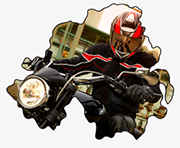 The European Transport Safety Council (ETSC) has highlighted on their website a video produced by the Safer Roads Foundation – “The critical importance of the “Automatic Headlights On” (AHO) function for Powered Two-Wheelers (PTWs) submission to the Automotive Unit of DG Enterprise and Industry.”
The European Transport Safety Council (ETSC) has highlighted on their website a video produced by the Safer Roads Foundation – “The critical importance of the “Automatic Headlights On” (AHO) function for Powered Two-Wheelers (PTWs) submission to the Automotive Unit of DG Enterprise and Industry.”
This call to use UNECE specifications sets a dangerous precedent for future issues, that technical regulations already agreed in committee can form the basis for EU Directives on legislation which – according to ETSC can be modified in a couple of weeks without proper checks and balances.
Read More……
![]()
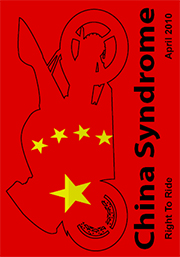 Right To Ride waits for the European Union (EU) Commission to publish its draft legislation for a new Framework Directive which will possibly see motorcyclists restricted from modifying their bikes and restrictions to 100 bhp as well as imposing mandatory ABS brakes on EU manufacturers.
Right To Ride waits for the European Union (EU) Commission to publish its draft legislation for a new Framework Directive which will possibly see motorcyclists restricted from modifying their bikes and restrictions to 100 bhp as well as imposing mandatory ABS brakes on EU manufacturers.
While we wait to see exactly what new rules and regulations the EU Commission want to impose on motorcycling, unsafe, unregulated and pollutant motorcycle imports from China continue to flood the EU markets that have passed Type Approval and are flouting present regulations.
Read More……
![]()
 The European Commission (EC) on Road Safety has recommended a solution for “Dangerous Motorcycles”, which is that (Electric) power assisted pedal bikes and tilting three wheelers could become acceptable alternatives in the near future for some existing groups of PTW users (that’s motorcyclists in normal speak).
The European Commission (EC) on Road Safety has recommended a solution for “Dangerous Motorcycles”, which is that (Electric) power assisted pedal bikes and tilting three wheelers could become acceptable alternatives in the near future for some existing groups of PTW users (that’s motorcyclists in normal speak).
The rise of the (electric) machines is upon us. How painful will prising our grip from the throttle of our internal combustion engine be?
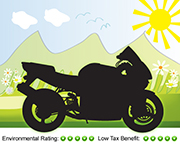 Motorcyclists could be paying less VED (Vehicle Excise Duty) – Road Tax – if the same CO2 emissions based VED scheme was introduced for motorcycles that is already in place for cars – and from April 2010, for new car purchases.
Motorcyclists could be paying less VED (Vehicle Excise Duty) – Road Tax – if the same CO2 emissions based VED scheme was introduced for motorcycles that is already in place for cars – and from April 2010, for new car purchases.
But they won’t unless the motorcycle manufacturers supply CO2 emission information. Unlike car manufacturers who have reported CO2 emission figures for years as part of the European type approval system, motorcycle manufacturers do not state these figures.
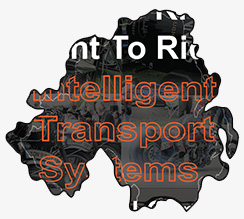 High on the European Road Safety agenda is focus on passive and active Intelligent Transport Systems (ITS) to reduce road casualties.
High on the European Road Safety agenda is focus on passive and active Intelligent Transport Systems (ITS) to reduce road casualties.
Drawing together stakeholders from within Europe: from the Europe Union (EU) Commission through to user organisations, an initiative called e-Safety claims that:
“eSafety brings together the European Commission, industry, public authorities and other stakeholders to accelerate the development, deployment and use of eSafety systems – Intelligent Vehicle Safety Systems – that use information and communication technologies in intelligent solutions, in order to increase road safety and reduce the number of accidents on Europe’s roads”.
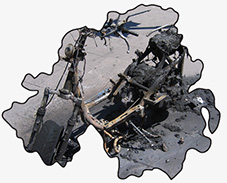 Northern Ireland has the lowest level of motorcycle theft in the UK (includes scooters and mopeds).
Northern Ireland has the lowest level of motorcycle theft in the UK (includes scooters and mopeds).
A study carried out by Carole Nash, is the most comprehensive annual study of its kind since the Home Office last published the Motorcycle Theft Survey in 2005.
The study analysed over 230,000 claims from their customers and used this data to assess the biggest risk areas.

